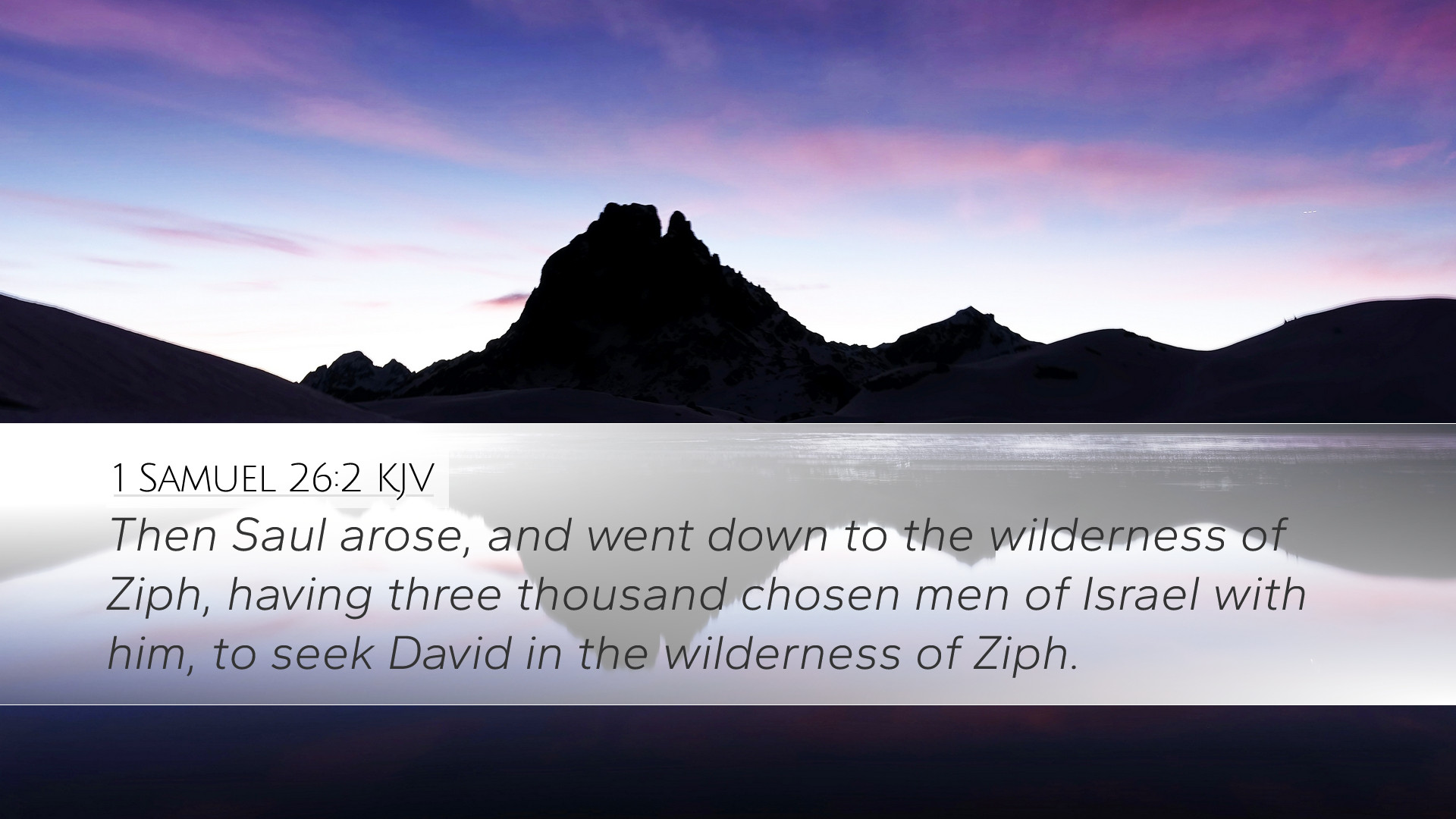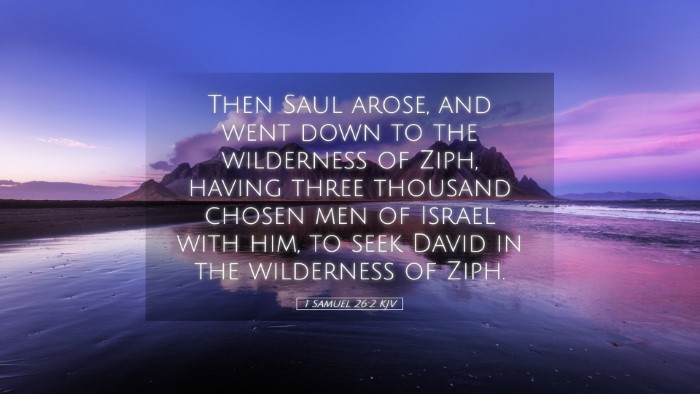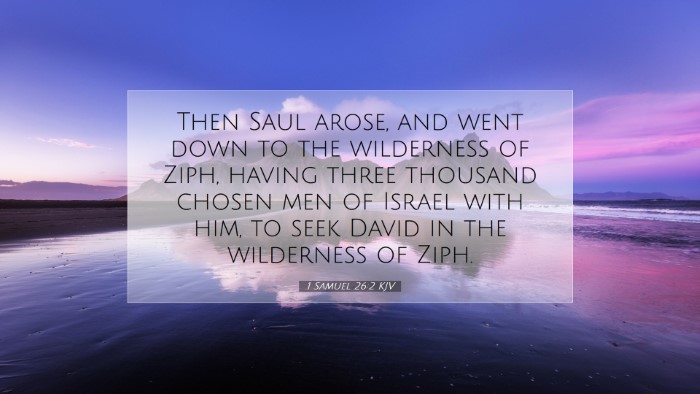Commentary on 1 Samuel 26:2
1 Samuel 26:2 states:
"Then Saul arose, and went down to the wilderness of Ziph, to seek David in the wilderness." (1 Samuel 26:2, KJV)
This verse situates us in a critical moment of David's flight from Saul, highlighting the ongoing conflict between the anointed king of Israel and his future successor. The significance of this passage extends beyond its immediate context, reflecting themes of leadership, divine providence, and the nature of true kingship.
Contextual Overview
In the broader narrative of 1 Samuel, we find that David has been anointed as king, yet Saul remains in power, consumed by jealousy and paranoia. David's ascension is marked by trials, and this verse encapsulates the moment where Saul actively seeks out his rival.
-
Saul's Pursuit: Saul is depicted as a man driven by fear and insecurity, leading him to act against God's chosen. His relentless pursuit of David signifies the struggle against divine will.
-
David's Flight: David's escape into the wilderness is emblematic of his reliance on God amidst adversity. It also reflects the theme of the wilderness as a place of divine preparation and testing.
Insights from Public Domain Commentaries
Matthew Henry's Commentary
Henry emphasizes the gravity of Saul's decision to pursue David into the wilderness of Ziph. He notes the depth of Saul's irrational envy and the consequential danger posed to David:
- Henry remarks that Saul’s intense desire to destroy David is indicative of a king not only losing his peace but also his perspective on righteousness.
- Furthermore, Henry points out that this pursuit illustrates a larger spiritual battle: the conflict between light and darkness, good and evil.
- David’s evasion serves to underline his faith in God’s protection and the unfolding divine plan for his life.
Albert Barnes' Notes on the Bible
Barnes provides a detailed exploration of geographical and cultural significance attached to Ziph. He interprets the location as emblematic of Saul's desperation and David's strategic movements:
- Barnes notes that the wilderness of Ziph was a rugged terrain, suggesting that David was not only seeking physical refuge but was also in a place where he could be spiritually fortified.
- He stresses that despite the threat from Saul, David’s reliance on God stands paramount; the mention of the wilderness evokes imagery of God's provision in desolate times.
- Furthermore, Barnes highlights that this event sets the stage for David’s character development, shaping him into the leader he is destined to become.
Adam Clarke's Commentary
Adam Clarke focuses on the psychological implications of the pursuit, analyzing Saul’s character and motivations:
- Clarke asserts that Saul's envy is not merely personal but represents a larger relational dynamic within Israel’s leadership, characterizing the transition from Saul's rule to David's expected kingship.
- He also underscores that Saul’s continued attempts to harm David not only signify his rejection of God’s anointed but also his decline into madness fueled by jealousy.
- Clarke's analysis prompts a deeper reflection on the nature of kingship and the trials that precede legitimate authority; David’s struggle highlights the afflictions of integrity in leadership.
Theological Reflections
This verse invites theological contemplation regarding God's sovereignty and the nature of human agency:
- The Sovereignty of God: Despite Saul's actions, the unfolding narrative is deeply rooted in God's sovereign plan. It serves as a reminder that God retains control even amidst human rebellion.
- Divine Providence: David's life is preserved through divine intervention. This underscores the overarching biblical principle that God watches over and protects His chosen servants.
- The Nature of Leadership: The challenges faced by David shape his character and prepare him for eventual kingship, teaching that true leadership is forged through perseverance under trial.
Conclusion
The dynamics captured in 1 Samuel 26:2 reflect integral themes of faith, rivalry, and the unfolding of divine purposes. For pastors, students, theologians, and scholars, this scripture emphasizes the importance of understanding context, character motivations, and the assurance of God’s providence in the midst of life's wildernesses. As we examine the actions of Saul and David, we glean vital insights on the nature of God's kingdom and the qualities required in true leadership.


